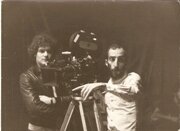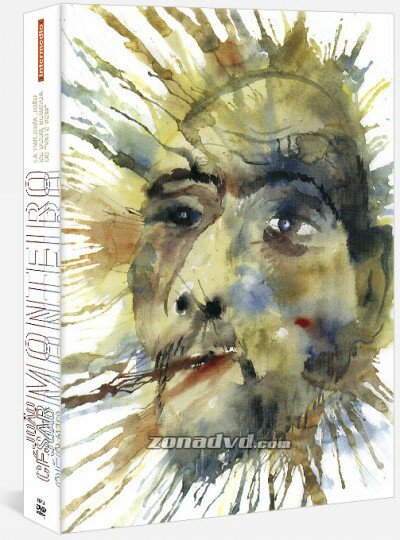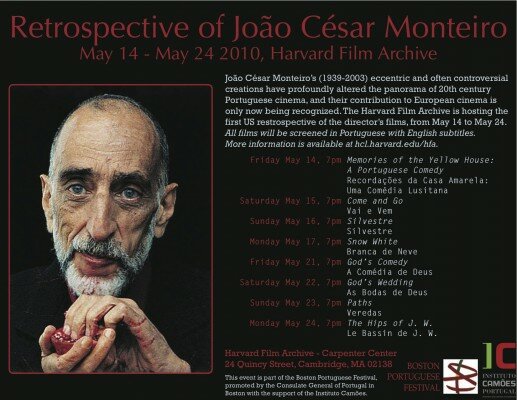Cesar Monteiro, Poet-Provocateur
João César Monteiro (1939-2003) remains among the most indelible and unusual figures in the history of Portuguese cinema, a visionary and profoundly eccentric filmmaker whose unique contribution to postwar European film is only gradually being recognized today. A cosmopolite imagination tethered by a provincial attachment to Lisbon, a libertine with an obscurely puritanical streak, an unrelenting aesthete guided by an archaic spirit – Monteiro was a deliberately contradictory and difficult artist who obdurately resisted affiliation with any declared “school” of filmmaking. Monteiro dedicated himself instead to a mode of sublimely, and often perversely, high modernism fascinated by a rich undercurrent between the cinema and the other arts – especially poetry, painting, theater, literature and music. Like the films of his compatriot Manoel de Oliveira (b. 1908), Monteiro’s cinema was also animated by an alternately cryptic and trenchant political agenda that took frequent target at the holy trinity of Church, State and Family still firmly entrenched after the fall of the Salazar dictatorship. In such seminal early works as Paths and Silvestre, Monteiro treated obscure Portuguese myths and legends as Rosetta stones for understanding the darkest shadows of the national unconscious and suggesting the ways in which the country’s imperialist and patriarchal legacies continue to shape its citizens. In opulent late works like God’s Comedy and Come and Go, Monteiro channeled his lasting preoccupation with corporality and perverse sexuality into a sustained interrogation of individual agency and collective desire.
Raised in a devoutly Catholic family yet an avowed atheist as an adult, in many of his late films Monteiro cast himself in the recurrent leading role of “Joao do Deus”- named for the Portuguese-born patron saint of prostitutes, the infirm and fishermen but a wholly secular figure, a perverse Buster Keaton-like dreamer drawn to young women and possessed of a patient defiance of the established social order. A curious religious logic also guided the development of Monteiro’s extraordinary visual style, which moved from the radical mise-en-scene of the early work towards an increasing austerity shaped, above all, by Monteiro’s proclaimed distrust of artificial light – which reached its apotheosis in Snow White – and his desire to capture the effulgent mystery of sunlight and its shadows.
The Harvard Film Archive is pleased to organize and present the first U.S. retrospective of César Monteiro’s films.
http://hcl.harvard.edu/hfa/films/2010aprjun/monteiro.html


